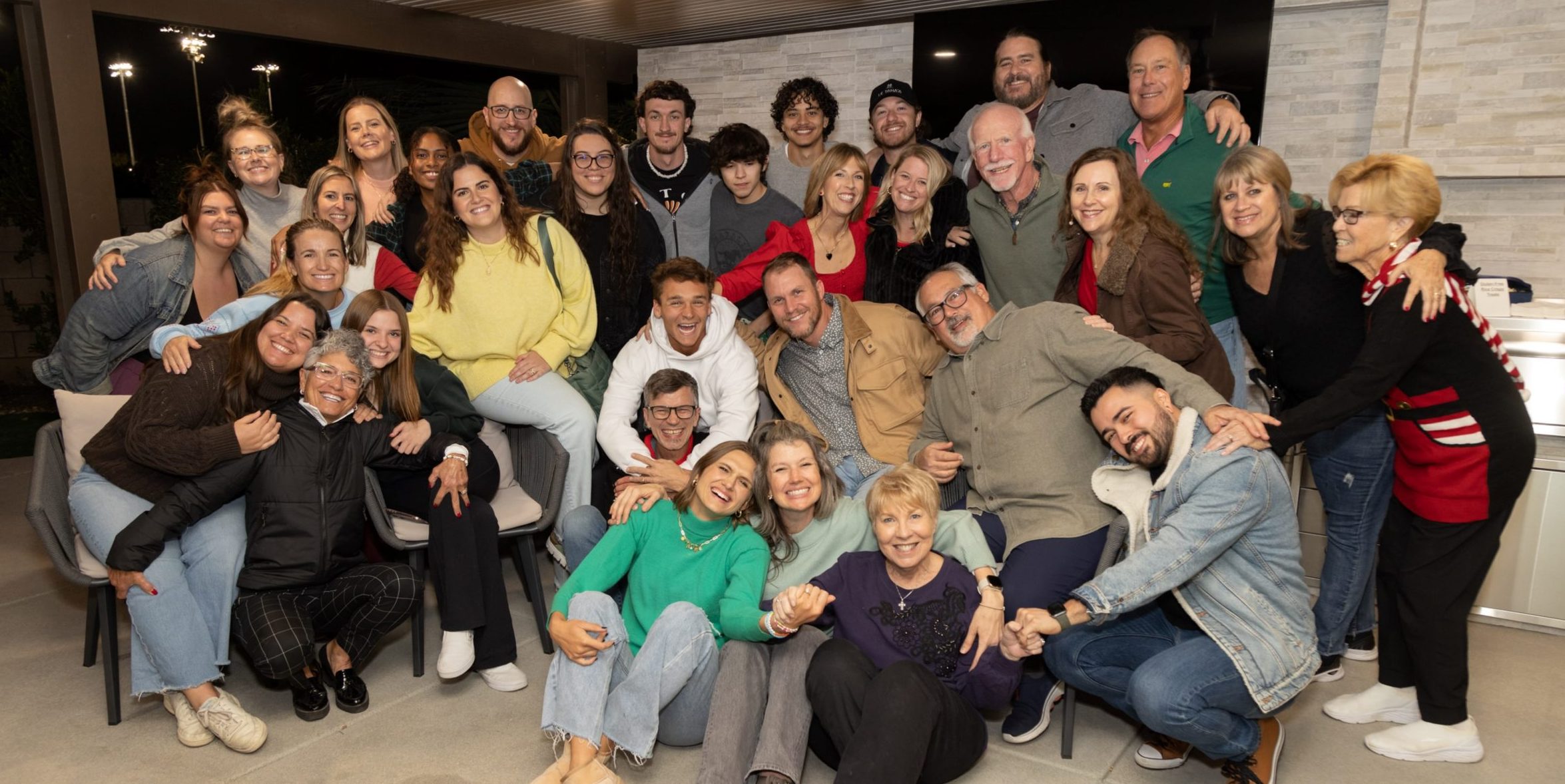The Bible offers a rich tapestry of metaphors to describe the life of a Christ follower. One particularly evocative image is that of an “aroma,” a fragrant scent that draws others in. In the context of your Young Life community, this “aroma of Christ” represents the potent, attractive power of a healthy and vibrant culture. It’s the intangible essence that permeates your interactions, programs, and relationships, leaving an indelible mark on everyone who encounters it.
If you aspire to see Young Life flourish in your area, cultivating this compelling culture is essential. It’s about becoming a culture-shaper, intentionally influencing the atmosphere and ethos of your community. When you do, the difference is palpable — you can almost smell the transformation.
CULTURE: AN EVER-EVOLVING ENTITY
Culture isn’t a static entity; it’s a dynamic, living organism that constantly evolves, breathes, and adapts. It doesn’t need your permission to change; it will shift and morph with or without your input. Imagine a garden — left unattended, it may still produce some flowers, but weeds will inevitably creep in, and the beauty will decline apart from a gardener’s vigilance. Similarly, the culture of your Young Life community will naturally evolve, but without intentional guidance, it may not flourish in the way you envision.
However, as a leader, you have the power to influence its trajectory. You can shape its values, its norms, and its overall feel. You can be the gardener who tends to the soil, removes the weeds, and nurtures the blossoms. This requires intentionality, awareness, and a willingness to actively participate in shaping the environment you desire.
THE POWER OF LISTENING: THE FOUNDATION OF CULTURE-SHAPING
The most effective culture shapers are, first and foremost, exceptional listeners. As an example, consider how Jesus led with questions and modeled what it means to be a great listener. Before you can influence culture, you must understand it. This requires a willingness to step back, observe, and truly listen to the voices within your community. Think of a skilled conductor who, before leading an orchestra, takes the time to understand each instrument, its capabilities, and the nuances of each musician’s playing style. Similarly, as a leader, you must attune yourself to the unique voices and perspectives within your Young Life community.
Ask yourself:
- Am I truly in tune with the current state of my area’s culture? Do I understand the unspoken norms, the underlying values, and the overall feeling within our community? Have I taken the time to observe and understand the dynamics at play?
- Are my assumptions about our culture accurate? It’s easy to fall into the trap of assuming we know what others are thinking and feeling. But assumptions can be misleading. Am I willing to challenge my assumptions and seek out diverse perspectives?
- Do my team members feel comfortable sharing their ideas, or do they perceive me as closed off? Do I create a safe space for open and honest communication? Do I actively encourage feedback and dissenting opinions? Or do I inadvertently stifle creativity and discourage open dialogue?
This self-reflection is crucial. It’s an opportunity to demonstrate to your team that their voices matter, their perspectives are valued, and their contributions are essential. When people feel heard and respected, they are more likely to invest their time, energy, and talents in the mission of Young Life.
THE BENEFITS OF A THRIVING CULTURE
A healthy culture is the lifeblood of any successful organization, and Young Life is no exception. When your area’s culture is thriving, the benefits are undeniable:
- Increased Productivity: Team members who feel valued and supported are more likely to be engaged and productive. They bring their best selves to the table, contributing their talents and energy wholeheartedly. Imagine a team where everyone feels empowered to contribute their unique gifts and perspectives. This synergy fuels creativity, innovation, and ultimately, greater impact.
- Enhanced Enjoyment: A positive and supportive culture creates an environment where people genuinely enjoy working together. This fosters camaraderie, strengthens bonds, and makes ministry work more fulfilling. When people enjoy what they do and who they do it with, they are more likely to persevere through challenges and celebrate victories together.
- Magnetic Recruiting: A vibrant culture acts as a magnet, attracting new leaders, staff, and committee members. People are drawn to communities where they feel welcomed, valued, and empowered. A strong culture becomes a self-perpetuating cycle, attracting like-minded individuals who contribute to and further enhance the positive environment. By the way, this magnetism will also attract adolescents who long for a community such as this!
- Increased Leader Tenure: When leaders feel supported, appreciated, and invested in, they’re more likely to stay involved for the long haul. This creates stability, continuity, and a deeper sense of community. Long-term leaders provide invaluable experience, mentorship, and institutional knowledge, strengthening the foundation of your Young Life area.
- Positive Word-of-mouth: A thriving culture generates positive buzz. People will naturally share their positive experiences, attracting even more people to your Young Life community. This organic word-of-mouth marketing is powerful and expands your reach and impact.
CULTURE EATS STRATEGY FOR BREAKFAST
The adage “culture eats strategy for breakfast” highlights the undeniable truth that even the best-laid plans will falter if the underlying culture is weak. Imagine a beautifully designed car with a faulty engine. No matter how aesthetically pleasing the exterior is, the car won’t function properly without a strong internal mechanism. Similarly, a well-crafted strategy will struggle to gain traction without a supportive and healthy culture to propel it forward.
A positive culture fuels success, amplifies impact, and creates an environment where everyone can thrive. It’s the fertile ground where seeds of vision can take root and flourish.

ASSESSING YOUR AREA’S CULTURE
To effectively shape your culture, you need to understand its current state. Just as you can smell if a gallon of milk has gone bad, you need to regularly “sniff out” the health of your ministry’s culture. This requires intentionality, vulnerability, and a genuine desire to learn and grow.
Ask yourself:
- Do my volunteer leaders enjoy being together? Do our meetings and events feel like a burden, or are they opportunities for connection, laughter, and shared purpose?
- Do they feel successful and supported in their roles? Do they have the resources, training, and encouragement they need to thrive? Do they feel empowered to take ownership and make a difference?
- Do they feel a sense of pride and ownership in our Young Life area? Do they see themselves as integral members of a larger community, or do they feel like isolated individuals simply performing tasks?
- Do they feel their ideas are welcomed and valued? Do we create a space where everyone feels comfortable sharing their thoughts, concerns, and suggestions? Do we actively solicit feedback and consider diverse perspectives?
These may seem like small details, but they are far from insignificant. A leader who feels unheard is less likely to share innovative ideas that could revolutionize your outreach. A volunteer who feels unsupported might hesitate to invite their friend, who could become your next incredible leader. Every individual within your Young Life community has the potential to contribute something valuable, but a negative culture can stifle creativity, discourage participation, and ultimately hinder your impact.
FEEDBACK: A GIFT AND A GUIDE
Feedback is invaluable. It’s a gift to the person sharing it, offering them a voice and a platform to be heard. It’s also pure gold for you as a leader, providing crucial insights into the health of your culture. It’s like a mirror, reflecting back to you the reality of your leadership and the impact you’re having on others.
A SIMPLE STRATEGY FOR GATHERING FEEDBACK
Here’s a practical approach to gather feedback and assess your culture:
- Utilize Surveys: Create a simple, anonymous survey to gather honest feedback from your leaders. Ask questions that address the key aspects of your culture, such as those mentioned earlier. Be specific, but also leave room for open-ended responses that allow for deeper insights.
- Dedicated Time for Feedback: Ask your team leaders to dedicate 10-15 minutes at their next meeting for leaders to complete the survey. Emphasize the importance of honest and thoughtful feedback, assuring them that their responses will be taken seriously.
- Process Feedback with Trusted Advisors: Resist the urge to read responses as they come in. Instead, gather with a few trusted advisors (committee members, team leaders) to analyze the results collectively. Look for trends, identify areas of strength, and pinpoint areas that need attention. Approach the feedback with humility and a willingness to learn.
- Take Action: Based on the feedback, select a few key areas you want to influence and develop a plan to address them. This might involve implementing new initiatives, providing additional training, or simply fostering more open communication. Communicate your plan to your team, demonstrating that you value their input and are committed to creating a positive and thriving culture.
THE AROMA OF A CHRIST-CENTERED COMMUNITY
Remember, you have influence. You can make a tangible difference in the culture of your Young Life community. The scent of a healthy, Christ-centered community is unmistakable. It’s characterized by love, joy, peace, patience, kindness, goodness, faithfulness, gentleness, and self-control — the very fruits of the Spirit (Galatians 5:22-23). It’s an aroma that attracts, offering a sense of belonging, acceptance, and hope.
By actively listening to your team, leading with love, and intentionally shaping your culture, you can create an environment that draws people in, fosters growth, and ultimately glorifies God. As 2 Corinthians 2:15 reminds us, “For we are to God the pleasing aroma of Christ among those who are being saved and those who are perishing.”
Let the aroma of your Young Life community be a testament to the transformative power of Christ’s love, inviting others to experience the hope and joy found in him. Let it be a fragrance that permeates your schools, your neighborhoods, and your city, leaving an enduring legacy of love, faith, and service.







